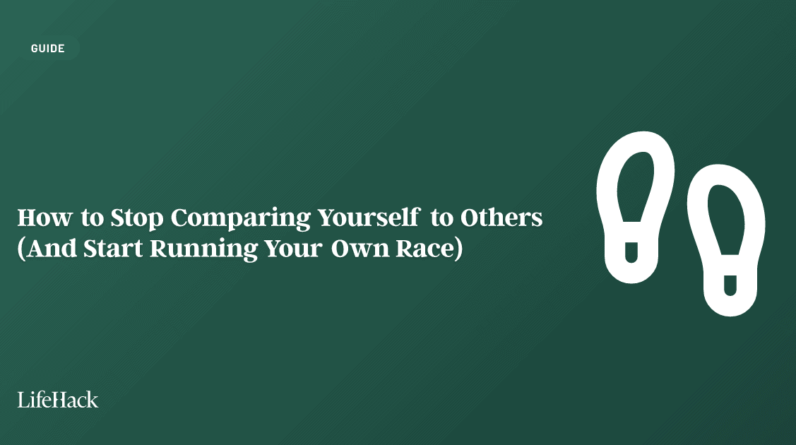
We’ve all been there…
Maybe we’re having what seems like a perfectly normal day when, suddenly, a minor setback—perhaps even just a spilled coffee or a snippy email—sends your emotions spiraling.
So, why do we get so triggered by such small things?
The answer often lies not in the incident itself (although sometimes this can play a part!) but in something much deeper: Our emotional wellness.
While we might spend hours planning our physical fitness routines or career development, many of us neglect this critical piece of overall health and well-being.
Think about it: how much time do you dedicate to understanding and nurturing your emotional health? For most, it’s next to zero!
From the way we process our feelings to how we handle stress and conflict, every aspect of our emotional health plays a vital role in shaping our daily experiences, relationships, and overall life satisfaction.
- So, what should you know about emotional wellness?
- How can you enhance yours?
Let’s take a closer look!
What is the Meaning of Emotional Wellness?
Maya Angelou once said,
“People will forget what you said, people will forget what you did, but people will never forget how you made them feel.”
As humans, we are emotional human beings. Our emotions serve as an internal compass, helping us navigate the world around us:
- fear keeps us safe from danger
- joy connects us to others
- anger alerts us to violations of our boundaries
- sadness helps us process loss and change
These emotional responses, developed over millennia of human evolution, continue to guide our decisions, shape our relationships, and influence our behaviors in profound ways.
So, what does emotional wellness involve exactly?
Sometimes called emotional intelligence or emotional health, emotional wellness includes:
- Self-awareness and understanding
- Ability to express feelings appropriately
- Stress management
- Resilience in facing challenges
- Healthy relationship building
- Empathy and compassion
- Boundary setting
In other words, emotional wellness isn’t about being happy all the time.
Life throws challenges at us, and we are forced to deal with them. But by gaining greater emotional wellness, we can understand and accept all emotions—both positive and negative—and develop healthy ways to process and express them.
When it comes down to it, emotional wellness is your ability to cope with life’s challenges while maintaining a sense of optimism and purpose.
What Are Good Emotional Goals?
Setting emotional wellness goals doesn’t require dramatic life changes.
Instead, focus on achievable targets such as:
- Practice daily mindfulness or meditation
- Journal about your feelings regularly
- Learn to identify emotional triggers
- Develop better conflict resolution skills
- Build stronger personal boundaries
- Improve communication in relationships
- Increase self-compassion
- Reduce negative self-talk
Often, your specific goals will depend on your current emotional challenges and areas where you want to grow.
- What aspects of your emotional life feel most challenging?
- Where do you notice yourself struggling?
These questions can help guide your goal-setting process.
For instance, if you find yourself frequently overwhelmed by stress, your goal might be to develop three new coping strategies and practice them consistently over the next month.
This might mean practicing deep breathing or performing brain dumps to help process and reflect on why you feel a certain way.
How Do I Improve My Emotional Wellness?
Here are specific strategies to enhance your emotional wellness!
1. Practice Emotional Awareness.
Start by simply noticing and naming your emotions throughout the day.
Consider keeping an emotion journal where you track your feelings and what triggered them. This practice helps you understand your emotional patterns and responses better.
And it’s important to keep in mind that all emotions are valid, even the uncomfortable and negative ones.
By developing this awareness, you’ll become more attuned to your emotional needs and better equipped to address them before they become overwhelming.
2. Develop Healthy Coping Mechanisms.
Instead of suppressing difficult emotions or turning to unhealthy habits, build a toolkit of positive coping strategies.
For example, deep breathing exercises can help calm your nervous system in moments of stress, while physical activity releases endorphins and provides a healthy outlet for emotional energy.
Creative expression, whether through art, music, or writing, further offers a powerful way to process complex feelings.
Additionally, talking with trusted friends provides perspective and support, and professional counseling can offer valuable guidance when needed.
Related Article: Secure Your Emotional Self-Regulation Skills With Valuable Tools & Techniques
3. Set and Maintain Boundaries.
Learning to say “no” and establishing healthy boundaries is undeniably important for emotional wellness. This starts with recognizing your own limits and honoring them consistently.
So, practice communicating your needs clearly and respectfully to others while also being mindful of and respecting their boundaries. Take time for yourself without guilt, and avoid overcommitting to preserve your emotional energy.
Remember that boundaries aren’t about pushing people away; rather, they’re about creating healthy relationships with yourself and others.
Related Article: 5 Important Ways You Can Set Healthy Boundaries with Others & Stick to Them
4. Build Strong Support Systems.
Humans are social creatures, and having reliable emotional support is vital for our well-being.
So, what does this mean?
Well, you could focus on nurturing existing relationships by making time for meaningful connections and being present with loved ones. Consider joining support groups or communities where you can connect with others who share similar experiences or challenges.
You could also practice being vulnerable with trusted friends, as well as offer support to others which can further strengthen your emotional resilience. And don’t hesitate to seek professional help when needed; sometimes, we all need a helping hand!
5. Practice Self-Compassion.
Many of us are our own harshest critics.
It can be easy to beat ourselves up (emotionally and mentally). But the truth is that none of us are perfect.
So, let’s start by acknowledging our humanity and imperfection. Everyone makes mistakes and faces challenges. Learn to forgive yourself and celebrate your successes, no matter how small they might seem.
Something you may want to consider doing is practicing speaking to yourself with the same kindness you’d offer a good friend facing similar situations. This can help you foster the compassion we often need within ourselves.
Cultivate Your Emotional Garden, Starting Today!
Tend to those weeds. Water your own garden first.
This will help make you the best version of yourself so you can give to others, too.
After reading this article, it may help to start by identifying one area of your emotional wellness that needs attention. Perhaps it’s:
- learning to express your feelings more effectively
- developing better stress management techniques
- building stronger relationships
Then, take small steps each day to nurture your emotional health (specifically the aspects you know need work).
- So, what aspects of your emotional wellness could use some attention?
- How might improving your emotional health positively impact other areas of your life?
The journey to emotional wellness starts with these simple questions and your willingness to explore the answers!
Read Next: 40 Inspiring Journal Prompts to Guide Your Deep & Personal Journey
Photo by Juan Pablo Serrano







